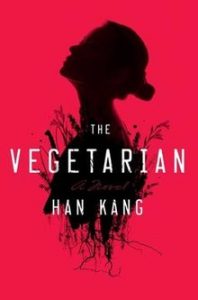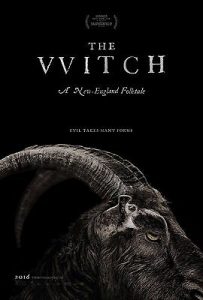I had the pleasure of reading Han Kang’s The Vegetarian last year, and looking back, I would say it does a much better job of depicting the fantastic than “The Fruit of My Woman” does. Unlike “The Fruit of My Woman,” there is no supernatural change in The Vegetarian. The main character, Yeong-hye, decides one day that she is going to stop eating meat because of a dream that she had. This simple decision, however, ends up leading to several strange delusions and desires. She begins to believe that she is transforming into a plant and wishes to survive solely on air and sunlight; when she is at home, she remains undressed, claiming that she likes it better; the only things that sexually arouse her are images of nature—namely, flowers.
There is also an air of mystery to Yeong-hye that the wife in “The Fruit of My Woman” does not possess; Yeong-hye does not cry, does not speculate about things, and does not confront others—the only times when we really see emotion from her are when she fights with her friends and family about her newfound lifestyle. When we do finally learn about Yeong-hye’s dream, it is gory and disjointed and, in the end, still leaves us asking questions. Is there something fantastical about it? Was it sent to her by something or someone? Did it place some kind of a curse on her, causing her to slowly go insane? Or is the dream just a scapegoat, a way for Yeong-hye to escape responsibility for her current behavior? We don’t know, and that’s the best part.
Reading “The Fruit of My Woman,” I was somewhat disappointed by Kang’s choice to make the wife’s transformation indisputably fantastical. In the beginning, I was excited to think about what the story could be leading up to. Where did the bruises come from? Why were they getting bigger? Why couldn’t the doctors find anything wrong with her? The final reveal was almost laughable to me as I pictured her green skin and her entire body planted inside of a flowerpot. Is that really it? I thought to myself. It’s hard to say whether or not I would have felt differently if I hadn’t already read The Vegetarian, but when it comes to the fantastic, I’ve always preferred stories that explain as little as possible; I love being able to decide for myself whether or not the events of the story are fantastical or not.
One of my favorite examples of this is the 2015 Robert Eggers film The Witch. The story revolves around a Puritan family in 17th century New England who begin to suspect their eldest daughter is a witch. At a glance, the movie may seem indisputably fantastical, but there are certain clues throughout that imply the complete opposite; in one shot, an ear of corn is shown to be black with ergot, a fungus known to cause hallucinations. Similarly, most of the fantastical scenes in the film are only witnessed by one family member at a time, further calling their validity into question. The story also takes place during a time in which certain knowledge was considered sinful and therefore was suppressed by the leaders of religious communities; since they lack the knowledge that would allow them to think logically about the tragedies that have befallen them, the family end up blaming their own sinful natures for what is happening to them.
In my opinion, The Vegetarian is a much stronger story since there is so much that it doesn’t tell us. Reading “The Fruit of My Woman,” I felt that the final reveal took away so much of the pleasure I had been experiencing before reaching that moment in the story. I would have preferred to never find out what happens to the wife; the mystery was already more than enough for me.


Wonderful post, Mary. I believe that this story is a precursor of the novel, that the novel grew from it (pun intended). It’s interesting to me that, in doing so, Kang stripped away the explanation — or literalness — of the fantastic element in order to create, as you suggest, a more elusive, psychologically evocative story.